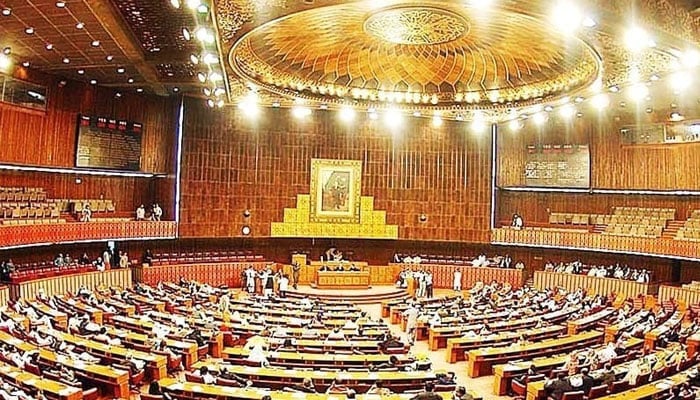The National Assembly has suspended a motion proposing an increase in the number of Supreme Court judges.
A motion to increase the number of judges in the Supreme Court of Pakistan was tabled in the Senate.Senator Abdul Qadir introduced the motion during a session chaired by Chairman Yousaf Raza Gillani, Express News reported.
Senator Qadir highlighted the growing backlog of cases in the Supreme Court, citing the shortage of judges as a primary cause.”Due to the limited number of judges, cases take years to be scheduled. Hundreds of tax-related cases involving billions of rupees are pending in courts, while we are forced to seek financial aid from other countries to meet our national needs,” he said.
There is a perception that in order to give majority to the other camp, the PML-N government is increasing the number of SC judges.Chief Justice of Pakistan (CJP) Qazi Faez Isa is retiring on October 25, but the PML-N government wants that he should remain in office for the continuity of the present system.
However, CJP Isa has made it clear that he is not interested in an extension through person specific legislation. However, he may continue if parliament extends the retirement age of every superior court judge for three years.
Today’s session, chaired by Speaker Sardar Ayaz Sadiq, saw several key discussions, including concerns over a corporate farming initiative and the allocation of 4.8 million acres of land.
During the session, Minister for Water Resources, Musadik Malik, responded to a notice from Naveed Qamar regarding changes to water flow and the allocation of land for the Green Carpeto Initiative.
Malik clarified that 800,000 acres of barren land have been designated for cultivation under this initiative, a project supported by both Punjab and Sindh provinces.
The project, which includes the construction of a 296-kilometre canal, is valued at Rs 211 billion. Malik assured that Punjab would use its share of water, without taking from other provinces.
Naveed Qamar expressed concerns, stating, “A country like Pakistan cannot afford such projects.”
Malik suggested that any confusion could be resolved through discussion, and if Sindh had any issues, the land could be returned.


